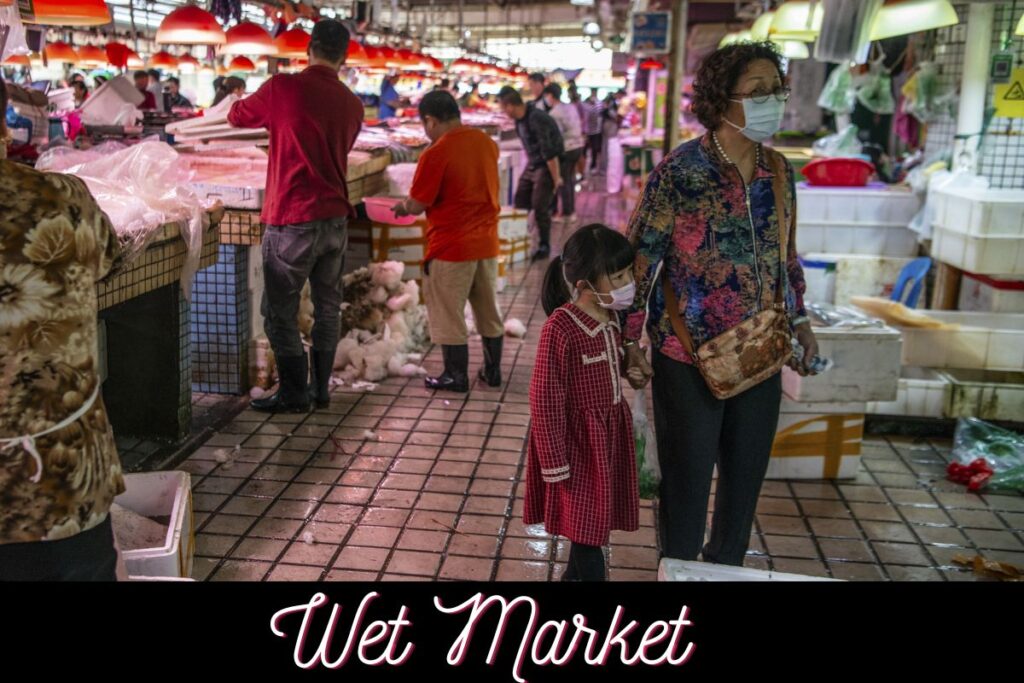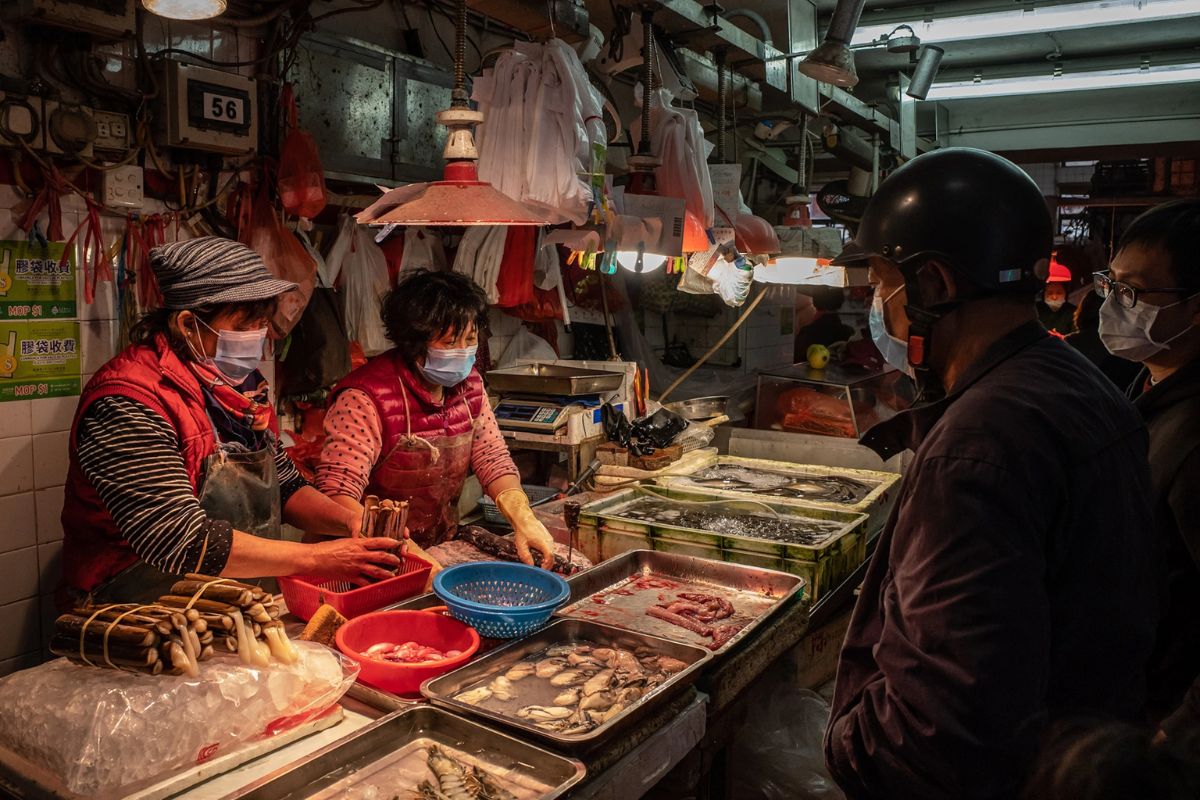Every day at first light, vendors in China and other Asian countries set up shops in outdoor “wet markets” to sell fresh produce, seafood, meat, and spices.
The wet market is an integral component of the social fabric of the neighborhood, where residents go to buy cheap food and hang out with friends and neighbors. Following the coronavirus epidemic, the markets have come under closer scrutiny.
Even though there has been a rise in the number of Asian supermarkets that sell chilled or frozen meats, many older consumers still prefer to buy freshly butchered meat for their daily meals because they believe it imparts a more authentic flavor to their dishes and soups.
At the butcher shop, slabs of beef and pig dangle from the ceiling, and different cuts are piled on the counters, all under lights that cast a reddish glare and attract the occasional buzzing of flies. However, due to significant avian flu outbreaks in the late 1990s, live poultry sales in markets were banned in Hong Kong and many Chinese provinces.
While “wet markets,” where produce is doused with water to keep it cold and fresh, may be deemed unhygienic by western standards, they are not the same as “wildlife markets,” which are currently the subject of loud calls for global prohibitions on the trading in exotic or wild animals.
Live and butchered snakes, beavers, badgers, civet cats, foxes, peacocks, and porcupines were on sale in the wild animal section of the now-infamous Wuhan South China seafood market, which is thought to have been a major source for distributing Covid-19 in late 2019.
The Wuhan market shut down in the month of January, and the Chinese government temporarily banned the trade of all wildlife. News articles claim that despite the pandemic, wildlife markets in southern China have reopened and are once again selling dogs, cats, bats, lizards, and scorpions.
Some Chinese still hold onto the outdated notion that eating meat from wild animals is good for your health. Professor Yuen Kwok-Yung and Dr. David Lung, two of Hong Kong’s most eminent microbiologists, issued a joint statement last month strongly discouraging the consumption of wild game and expressing concern that “Sars 3.0” could emerge if people did not stop eating animals from the wild.
if you are interested to read our article follow our site serveupdate.com and get all the latest news.





